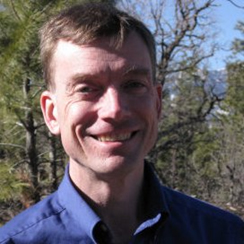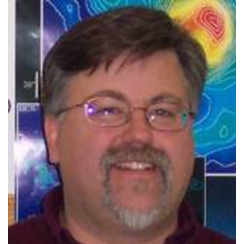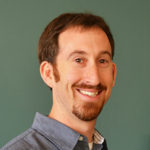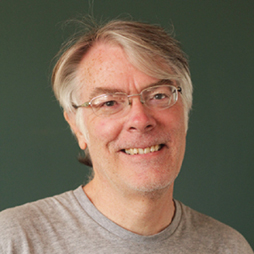 Dr. Jeffrey Hall
Dr. Jeffrey Hall
Director, Lowell Observatory
Presenter – A Walk Around Our Stellar Neighborhood; Night Sky Orientation
Jeffrey Hall has served as Director of Lowell Observatory in Flagstaff, AZ, since June 2010. He joined the staff at Lowell in 1992 as a postdoctoral research fellow. He received a B. A. in Physics in 1986 from Johns Hopkins and a Ph.D. in Astronomy and Astrophysics in 1991 from Penn State. His research at Lowell has focused on solar and stellar activity cycles, with the goal of lending an astronomical perspective to solar influences on terrestrial climate. He presently serves as a member of Flagstaff’s leadership group, the Flagstaff Forty, and is former President of the Governing Board of Northland Preparatory Academy as well as of the Board of Directors of the Flagstaff Symphony Orchestra. His principal avocation is music, and he has been the substitute organist at the Episcopal Church of the Epiphany in Flagstaff for 20 years.
 Dr. David Koerner
Dr. David Koerner
Northern Arizona University
Presenter – Discovering New Worlds
Dr. David Koerner studied physics, mathematics, and geology at California State University Long Beach and received M.S. and Ph.D. degrees in planetary science from the California Institute of Technology. He observes planet-forming disks around other stars with space- and ground-based telescopes and has carried out research at Jet Propulsion Laboratory and University of Pennsylvania. He has been a professor of astronomy at Northern Arizona University since 2002. He originated and regularly teaches “Life in the Universe,” a liberal studies course that investigates the scientific picture of our origins and existence in the universe at large. Dr. Koerner is also a performing musician focused on works that explore the relation between music and nature/science. As pianist, he performed extensively in the Southern California area as recitalist, concerto soloist, and collaborative pianist. He has been honored with awards from the Los Angeles Concerto Competition, MTNA Collegiate piano competition (California), Krenek Competition, Joanna Hodges International Piano Competition, and participated in the VIIth International Tchaikovsky Competition in Moscow. As violist and violinist, he currently performs with Flagstaff Symphony Orchestra and Orchestra Northern Arizona. At NAU, he is completing an M.A. degree in viola/violin performance reviving the concertos of astronomer Sir William Herschel. Dr. Koerner lives north of the peaks and off the grid with his partner, biologist Dr. Gery Allan, and a sled dog team of Alaskan Malamutes.
 Dr. Nick Moskovitz
Dr. Nick Moskovitz
Astronomer, Lowell Observatory
Presenter – Asteroid Impacts and How We Are Avoiding the Fate of the Dinosaurs
Dr. Nick Moskovitz is an astronomer at Lowell Observatory, a position he has held since 2014 following appointments at MIT and the Carnegie Institution of Washington. His degree is in astronomy from the University of Hawaii. Nick’s research involves observations and simple models of minor planets in the Solar System. His work has implications for topics ranging from the origin of the planets to the future exploration of small bodies by spacecraft.
 Brian Skiff
Brian Skiff
Research Scientist, Lowell Observatory
Presenter – Sunset Shadows and Circles; Night Sky Orientation
Brian Skiff has spent nearly 40 years at Lowell as an observer and research assistant. This has included taking the final photographic plates with the 33cm “Pluto Camera” astrograph, and measuring thousands of plates, films, and CCD images to improve the orbits of asteroids at a time when there was little activity in this area. He also spent 1200 nights over 15 years doing single-channel photoelectric photometry on Sun-like stars to explore long-term variations analogous to the 11-year sunspot cycle. This synoptic work continues to the present via spectroscopic observation of chromospheric activity. He participated in the decade-long LONEOS survey for near-Earth asteroids, manning the telescope about 100 nights per year. More recently he has obtained rotational lightcurves via CCD for some 200 near-Earth and other asteroids using several telescopes. Having an abiding interest in bibliography and star-cataloguing, he maintains a comprehensive catalogue of stellar spectral classifications, which is one of the most-frequently used items in the VizieR catalogue-query service. Skiff is also co-author of the “Observing Handbook and Catalogue of Deep Sky Objects,” a standard reference for amateur astronomers.
